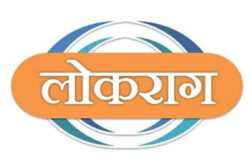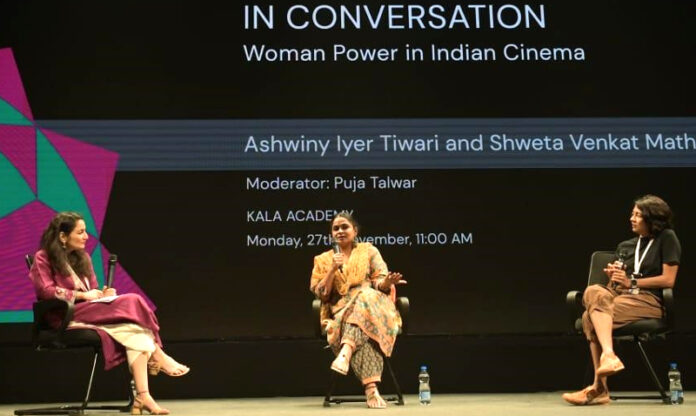The role of women in Indian cinema has changed a lot over a period of time from being just actors to becoming directors, producers, editors, script writers and technicians. But even in this 21st century, does the film industry in our country offers a level playing field in terms of gender equity?
An In-Conversation session held today at IFFI on the topic ‘Women Power in Indian Cinema’ tried to find answers to this poignant question. Artist, filmmaker and writer Ashwiny Iyer Tiwari and Film Editor Shweta Venkat Mathew joined the enriching conversation moderated by broadcast journalist and former Editor, NDTV Puja Talwar.
Emphasizing the shifting narrative surrounding women in film, Ashwiny Iyer Tiwari remarked, “In the beginning, celebrating the tags of a ‘female film director’ or ‘female film editor’ was crucial, but now, as women take the forefront, it’s time to eliminate these labels.”
Reflecting on the industry’s progress, the young filmmaker said that with the advent of more schools teaching films, editing and script writing, participation of women in films increased substantially. “There is a need for more women in decision-making bodies within the film industry. We need more men who encourage the participation of women in film decision making platforms”, she stressed.
While discussing opportunities paved open to women by OTT platforms, Ashwiny expressed hope that both theaters and OTT platforms will coexist. She pointed out that the recent success of the film 12th Fail demonstrates that a compelling story can attract audiences, irrespective of the platform.
Offering advice to aspiring women in the film industry, the multi-faceted director encouraged them not to overthink their roles, and emphasized on the collaborative nature of film making. She also stressed the significance of understanding real-life stories by traveling and engaging with diverse social structures.
Shweta Venkat Mathew, a seasoned film editor, highlighted the unique perspective women bring to storytelling. “Women’s eyes catch nuances lost in translation from script to screen,” she remarked, underlining the importance of increased female representation in the industry.
Shweta stressed that one should focus on the quality of work rather than gender-centric considerations. Regarding the impact of OTT platforms, she expressed optimism about the increased opportunities OTT platforms bring for technicians, irrespective of gender and age.
Addressing the issue of pay disparity, both women technicians expressed a differing point of view. While, Ashwiny, thanking her producers said that she didn’t face the issue of inequitable pay in her professional career, Shweta Venkat Mathew said that she felt a marked difference in what is being offered to her and her male counterparts at the start of a discussion. Ashwiny added that women film professionals usually don’t acknowledge their own talent; they need to negotiate better for fair compensation based on their contributions. The insightful conversation underscored the progress and challenges faced by women in the Indian film industry, emphasizing the need for continued collaboration, representation, and fair recognition.

















